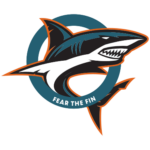It wasn’t exactly the dramatic finish of 2010 but the result was familiar: Team Canada dispatched Team Sweden in the methodically dominant fashion that typified their performance throughout the 2014 Winter Games to win their second consecutive Olympic gold medal in men’s hockey.
It’s also Patrick Marleau’s second gold, as he joins an exclusive list of players to win international hockey’s biggest prize multiple times and adds to a resume that should easily feature 500 goals and 1000 points in the NHL by the time he’s done, to go along with the two gold medals he was a key factor in securing for his country (as he did in 2010, Marleau finished top four in ice time among Canadian forwards). Throw in a likely top-15 all-time finish in playoff goal scoring and, hopefully, a Stanley Cup and it’s hard to see the longest-tenured Shark being denied entry to the Hall Of Fame when he’s finally ready to hang up the skates.
Marc-Edouard Vlasic, who logged big, important minutes on a Canadian blueline that allowed just three goals in six games, also had the honor of wearing gold around his neck as he, Marleau and Antti Niemi (bronze) give the Sharks three Olympic medalists in all this time around. If only Vlasic and Marleau were allowed to bring Drew Doughty and Jonathan Toews whom they meshed so well with, respectively, back to San Jose with them…
Speaking of the Sharks, I know this will sound like unrepentant homerism (and I’m really not making this comparison in terms of raw skill) but there are a lot of similarities between Team Canada and the current iteration of the Sharks and, perhaps, there’s a blueprint here for how San Jose can accomplish Canada’s feat of being the last club standing. There’s a wide disparity in the relative quality of each team’s blueline but, like Canada, the Sharks boast impressive center depth and, more pertinently to the point I’m trying to make, are built around a similar system of defense-through-possession.
The Sharks’ frequent lengthy stretches of offensive-zone pressure may not always lead to goals (just as they didn’t for Canada) but those serve to severely limit the number of chances they allow. Granted, it’s unrealistic to expect the Sharks to control possession for 60-65% of the game as Canada was routinely able to do–they aren’t as talented and they aren’t going to face Latvia in the Stanley Cup playoffs–but Team Canada’s dominant run through this tournament should provide some confidence that the Sharks’ gameplan, when executed properly, adheres to a winning formula. Like Canada, the Sharks will need to send wave after wave of skilled forwards at their playoff opponents in order to win and, like Canada, they’ll need all the help they can get from Vlasic and Marleau.

 As many of you know, Fear the Fin is an independent site run by Sharks fans for Sharks fans. Help keep Fear the Fin independent by contributing to our
As many of you know, Fear the Fin is an independent site run by Sharks fans for Sharks fans. Help keep Fear the Fin independent by contributing to our